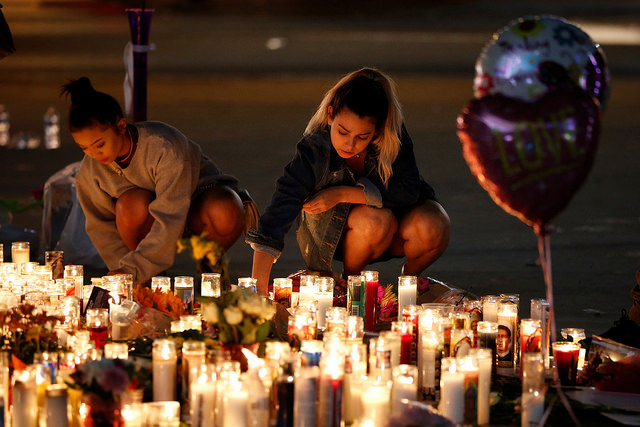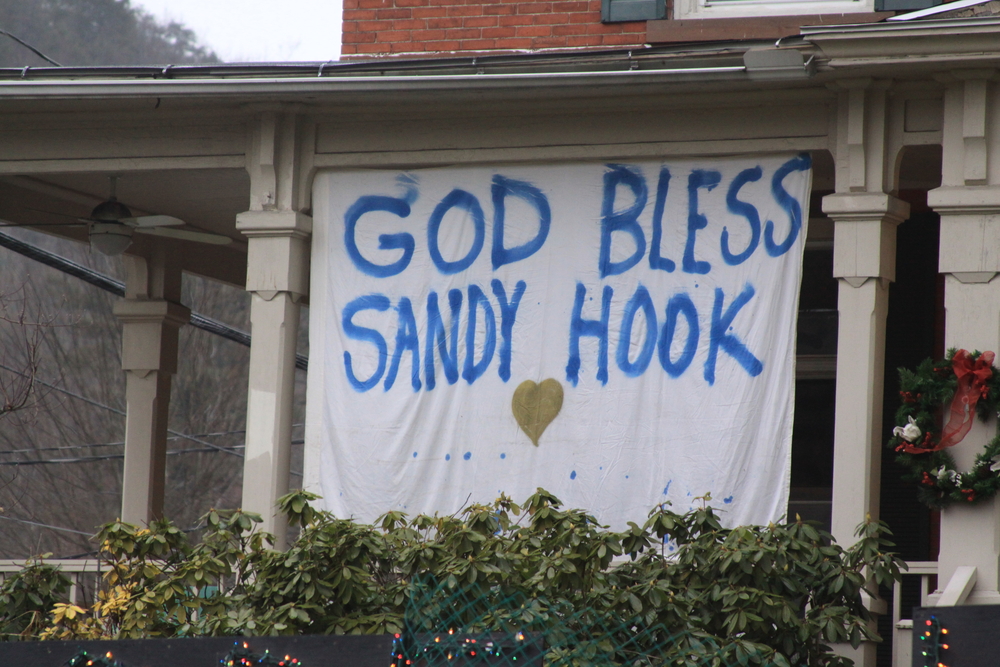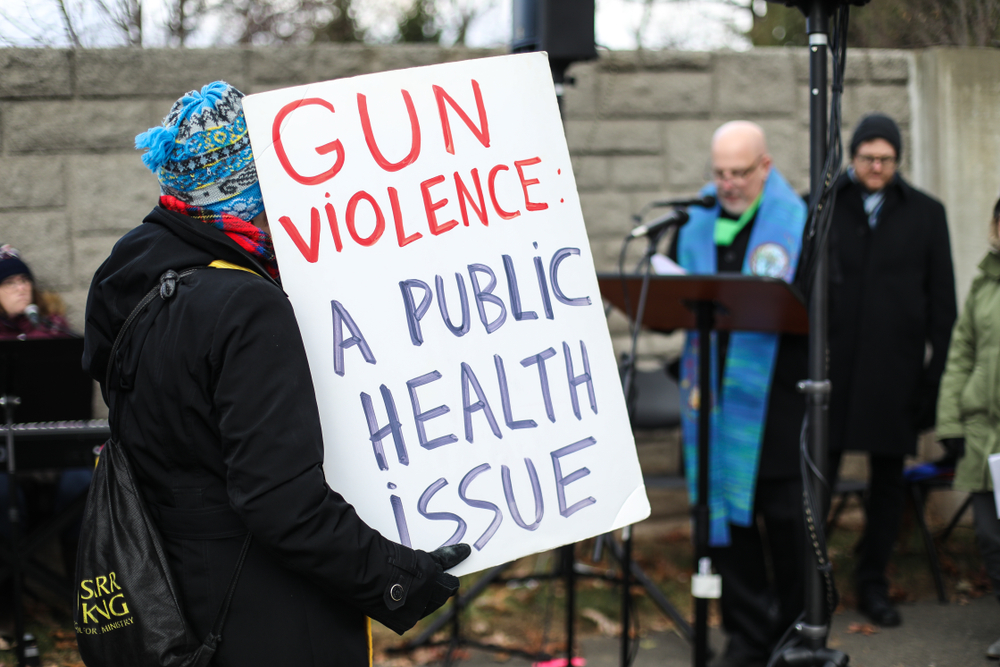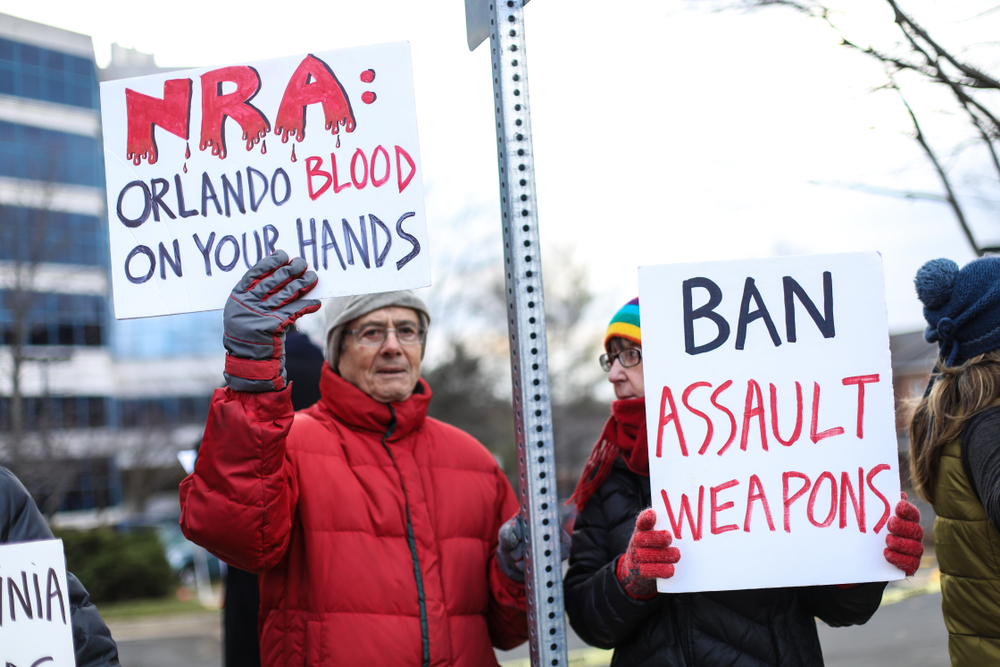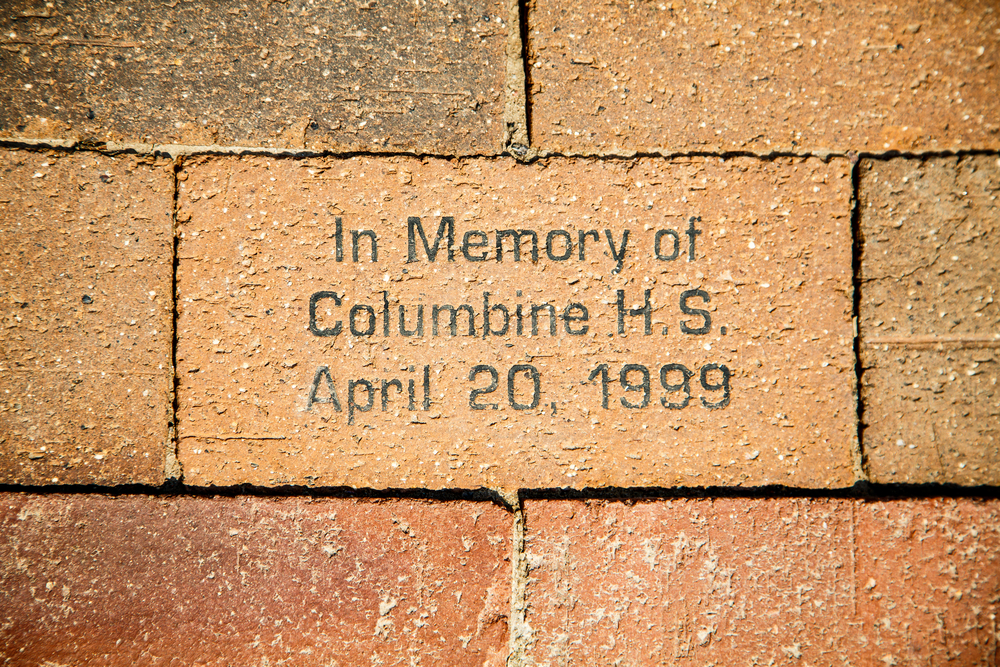Trigger Warning
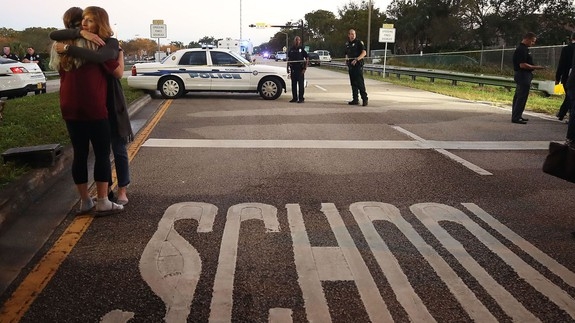
*A tyranny of graphic violence is described graphically in this article. The descriptions may be triggering for some.
I was 12-years-old when my family’s television set lit up with the news coverage of the Columbine massacre. For days, weeks, and months the media covered every angle of Dylan Klebold and Eric Harris's rampage through their Colorado high school. This was astonishing, to learn that maybe I’d be in a school library or auditorium one day and a couple of isolated and angry classmates might determine that was the moment I should die.
They might approach me, position the mouth of a rifle in between my eyes and ask me if I believe in God, before they sent me to meet whatever it is that lies beyond this life. At 12-years-old, I was terrified at what I would answer in that moment. Nearly two decades have passed and I’m still terrified. I still don’t know the right answers that will keep us alive.
This isn’t about faith anymore, or an answer that encapsulates all the intricate philosophies and intuitions— all the beautiful, hypocritical, cynical, and hopeful thoughts and dreams that make up a life and death. This isn’t about condensing all of what it means to be human and alive right now into a yes or no answer. And really, in the aftermath of yet another mass shooting, at another school, in another state, in another someone’s hometown, to another mother’s son or daughter, we need to stop trying to say the one right thing that will end this barrage, that will halt the bullets, that will keep the breath and blood pumping in our chests.
Image Credit: Flickr/Euronews
Intricately complex and gruesome problems require intricately complex and gruesome approaches. Gruesome, in this respect, is not a call for equalizing violence. Gruesome reactions to violence need not take an eye for an eye, or fight fire with fire—trite statements because they are over said, cliché because we still believe this vengeance is justice. A gruesome approach is a call for rooting out the heart of this issue that has nested so deeply into our bodies and souls and is at nefarious work shaping a nation and our world.
This work will be gruesome because we must contend with much that is dark and horrid within ourselves. We must unmercifully cast into the light the ugliest parts of ourselves, our greatest fears, and darkest secrets. It is a bloody and painful labor. It is completely necessary for survival.
As expected, mere seconds after yet more bodies scatter to the ground, gun control debates, political platitudes, and blasé blame games dominate the public conversation. The media casts about on open sea, sensing the trade winds these stories create, following the sensationalism wherever it may lead. These institutions, media, politics, the weapons industry, cannot supply a solution to this problem while they simultaneously capitalize on the confusion and trauma that erupts in the wake of unmitigated violence. The overall picture of this issue is clouded by the need for an absolute truism, the right silver bullet that will stop the killing in its tracks. Mass violence is not a fabled monster; it's our neighbor, it's our child, it's us.
Image Credit: Shutterstock/Ron Frank
The discussion over gun control or safe gun ownership, whichever euphemism appeals to our respective palates, is a valid one; the data is there, the lines in the sand are drawn here, here, here, and here.
We must discuss guns; changes must be made around their accessibility and their capacities in use. However, guns are an incendiary high-profile facet of the larger issue. Their symbolism aggregates the public focus, distracting us from the other highly complex and systemic issues that conflagrate our national penchant for violence. Again, we are distracted to our detriment.
In the aftermath of the Parkland shooting, Michael Ian Black tweeted that, “Boys are broken.” Coverage of “toxic masculinity” is on the rise, particularly in the wake of the #metoo movement and the resurgence of extreme-right white supremacist platforms. The myths of what it means to be a man in America are insidiously imbedded in every political, economic, and social facet of our culture. Social science research has examined the relationship between technological modernity’s impacts on our concepts of masculinity and the correlations to violence. Many believe men are becoming increasingly disenfranchised with their modern lives. Likely, they’re not alone in that sentiment.
Image Credit: Shutterstock/Nicole S. Glass
Mental health (and health in general) bears the American myth that our health is our individual responsibility alone and associated with our morality. This mythology occludes productive conversations around the mental health crisis in America, and its relationship to violence.
American mythologies of the “shining city upon a hill,” our unanchored claim that we are “the greatest nation on earth,” are rooted in ideological democratic moralities. These beliefs have sustained us for generations and have crystallized our paralysis in critical reflection upon the ways in which we aren’t great or morally emblematic.
In short, we are buried under our national cultural ideologies and mythologies.
Image Credit: Shutterstock/Nicole S. Glass
The National Rifle Association (NRA) relies upon these ideologies to shape their influence with constituents and politicians. They relate gun ownership to outdated models of American heritage and masculinity. The rhetoric deployed locks us into impasses, paralyzes, and de-incentivizes action in opposition to their platform. We are numbed, confused, and segmented into ideological rifts. As shootings increase, and mass violence death tolls mount, we are left utterly hopeless in the face of violent tyranny. The symbolic framings that dominate the public conversation on mass gun violence shelter the influence and power the NRA aggregates.
Yet, American citizens have a power bloc if we refuse to allow the ideological narratives infused with absolutism to segregate and divide us. Some of our vulnerabilities to these mythologies are beset by trauma. We are raising generations who must drill "what to do if there's an active shooter" between algebra and world history classes. We will never forget Columbine, or Sandy Hook, or Pulse, or Las Vegas. Traumatized brains can be more susceptible to siege mentalities, groupthink, fear of others, intolerance. This is a self-fulfilling prophecy that serves the political and economic interests of the NRA. Unacknowledged trauma can beget more intransigence.
Image Credit: Shutterstock/Darryl Brooks
Defunding and defanging the NRA, grabbing politicians by the ballot box, and demanding policy change is necessary. But as we expose the many facets of this issue, we highlight the spaces where we can go to work every day on the mythologies that obstruct progress in making Americans safe again. We must gird ourselves against ideologies that constrain us to agents of this violent system. Our lack of reflexivity is making us complicit in more death.
There is a gun to our heads. We need to consider what we believe and why we believe it.

